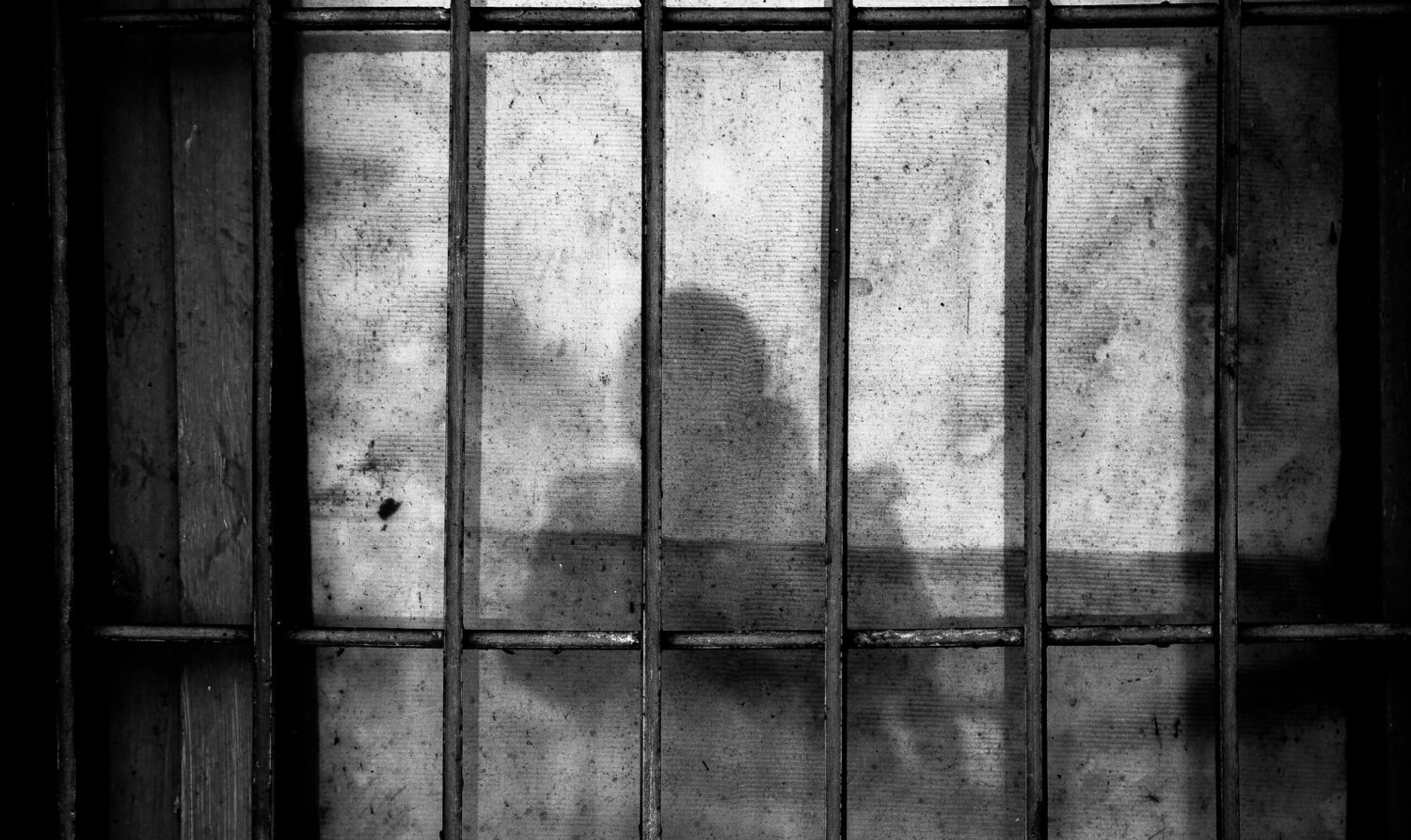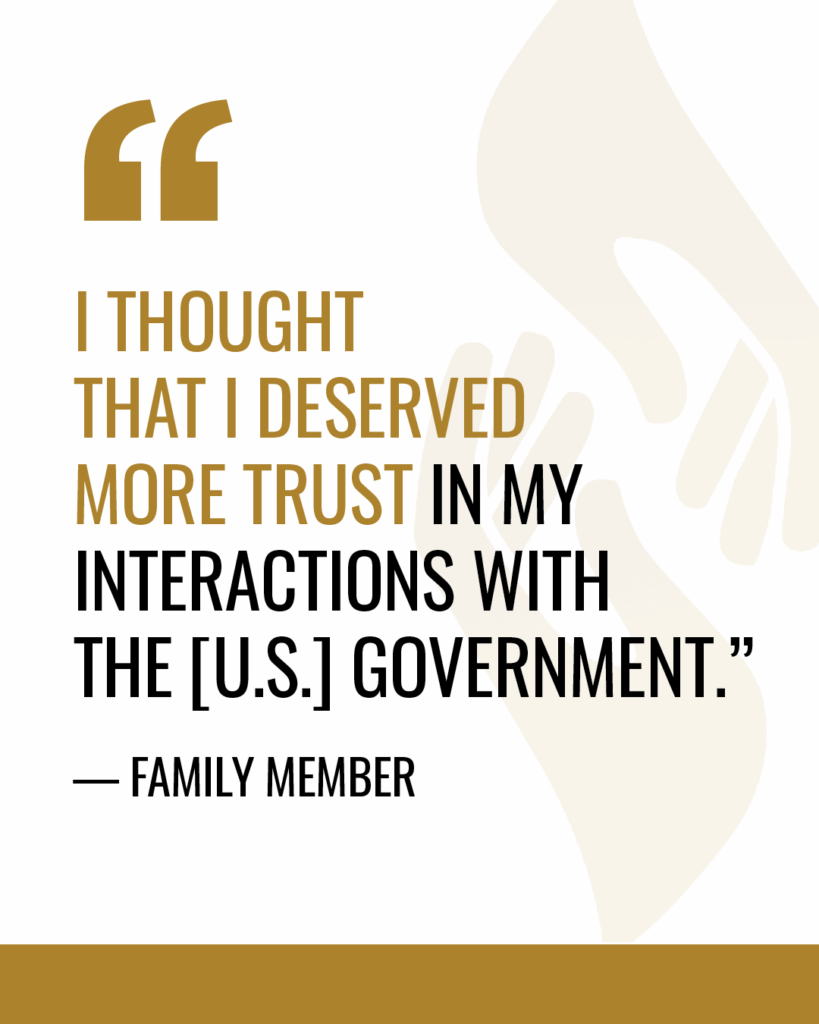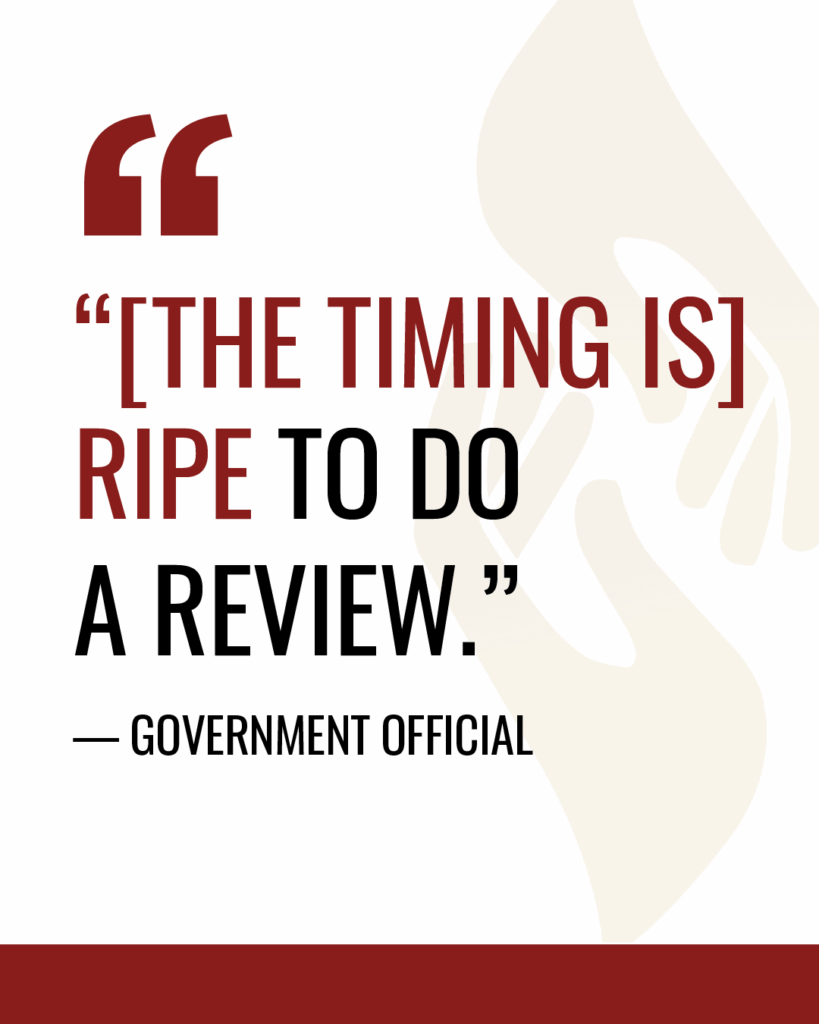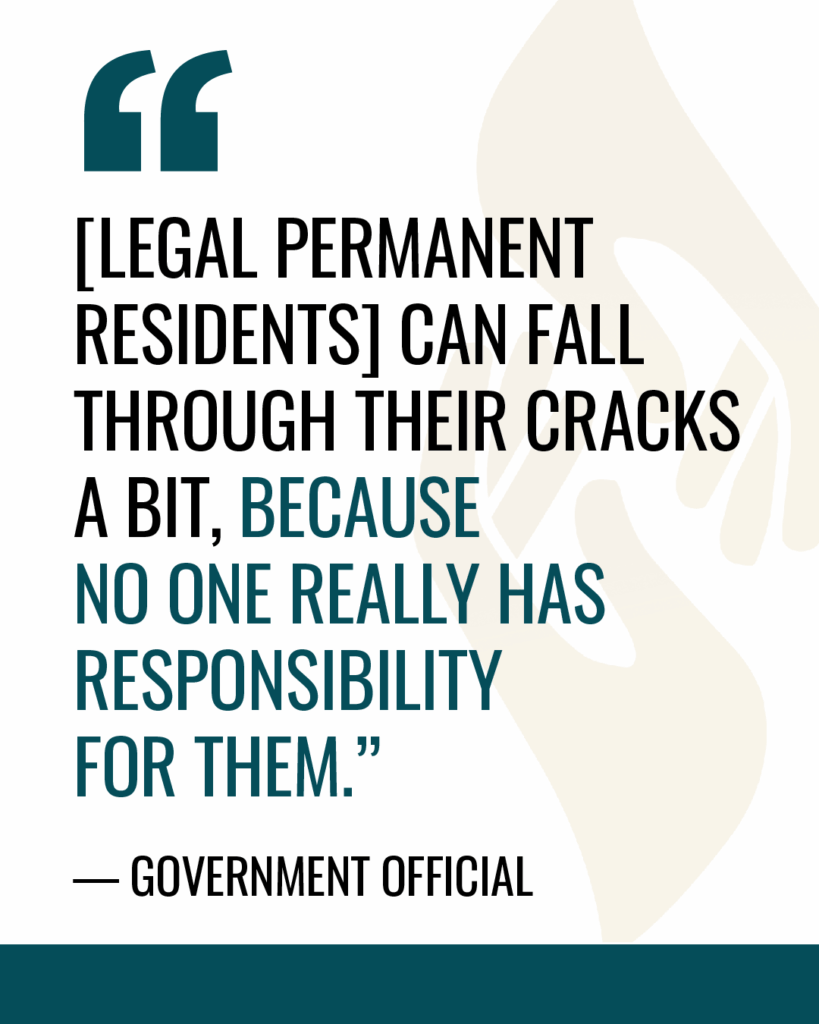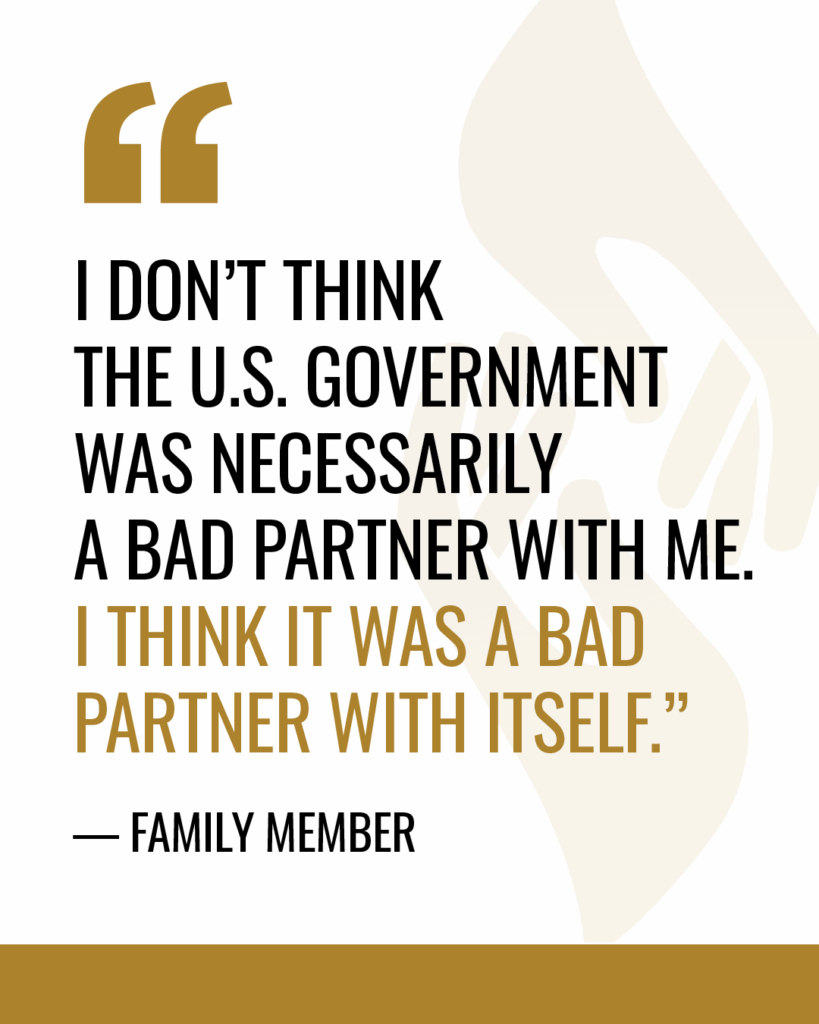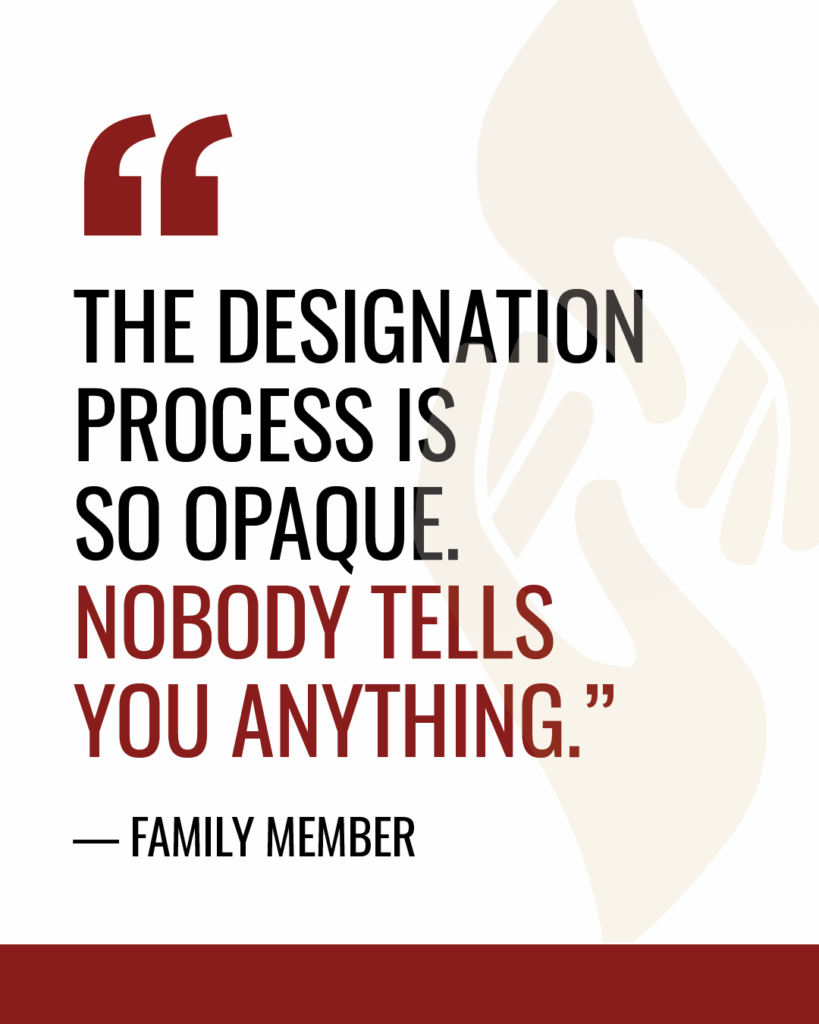recent Findings
Structural flaws in the U.S. hostage enterprise—such as limited access to decision-makers and competing foreign policy priorities—have prolonged captivity for some Americans. In addition to targeted fixes, the Foley Foundation’s latest report calls for a full review of the decade-old system to address unresolved issues identified in prior reports, including funding gaps, lack of transparency, and delays in the wrongful detention designation process.
EXECUTIVE SUMMARY
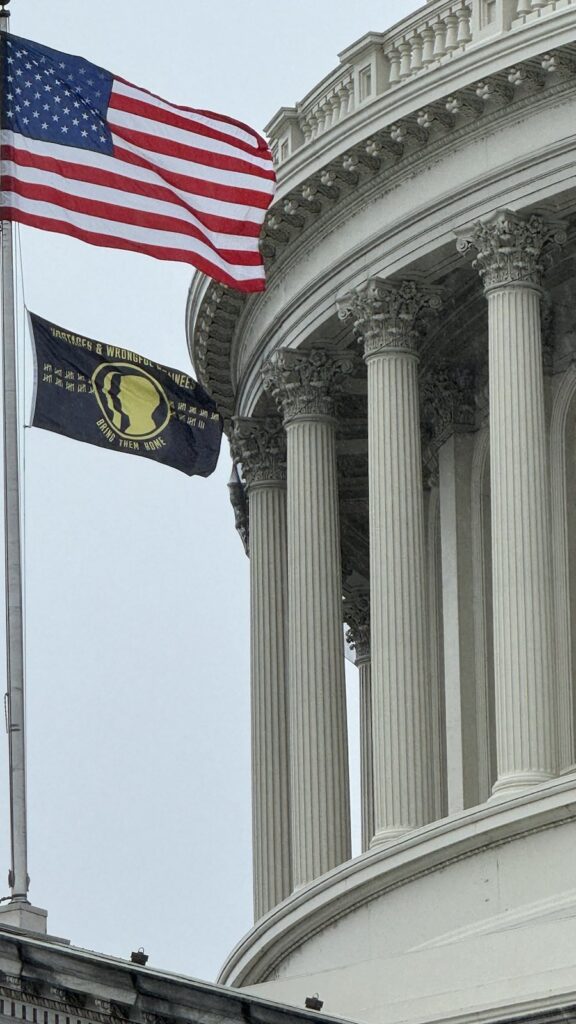
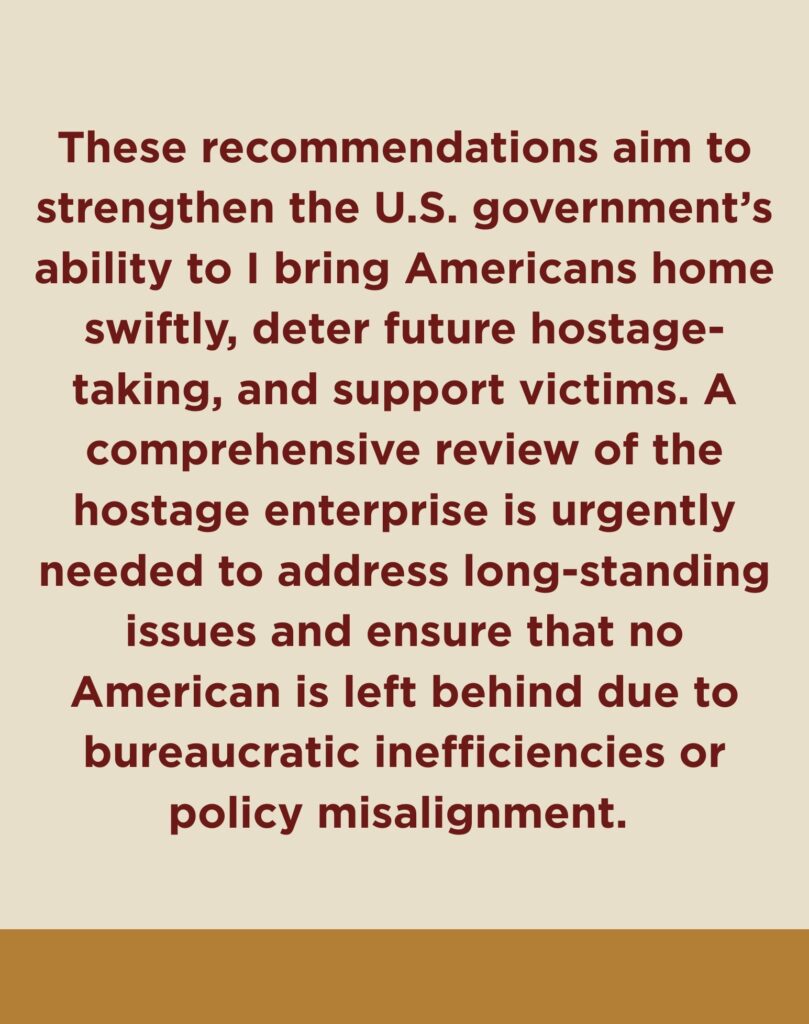
This report—the latest in the Bringing Americans Home research series — draws on 35 interviews with families of hostages and wrongful detainees, U.S. government officials, and subject matter experts. It identifies persistent structural and policy challenges that delay the return of Americans held abroad and hinder efforts to deter future hostage-taking and wrongful detentions. The findings reflect the final year of the Biden administration and reflect seven years of independent, nonpartisan research conducted by the James W. Foley Legacy Foundation.
KEY FINDINGS &
CORRESPONDING RECOMMENDATIONS
Structural Inefficiencies Delay Repatriation
- Dedicate annual funding to the Hostage Recovery Fusion Cell based on
operational needs rather than FBI priorities. - Ensure negotiations to free Americans are insulated from other foreign policy
concerns. - Conduct a whole-of-government review of the hostage enterprise to assess
policies, resources, structure, strategies for prevention and deterrence, and
support for families and returnees.
Levinson Act Criteria Are Not Treated as Binding
- Amend the Levinson Act to specify which factors for determining wrongful
detention are mandatory. - Codify that the “totality of circumstances” clause is intended to expand—not
restrict—designation eligibility. - Issue policy guidance affirming that bilateral concerns must not override the
imperative to bring Americans home.
Legal Permanent Residents (LPRs) Face Unequal Treatment
- Define a clear wrongful detention designation pathway for LPRs.
- Mandate consular support for LPRs in wrongful detention cases.
- Train embassy staff and regional policy desks on LPR rights and responsibilities.
Exit Bans Are Not Covered by The Levinson Act
Amend the Levinson Act to include wrongful exit bans.
Designation Process Continues to Lack Transparency
- Legislate clear triggers for a designation review (e.g., arrest notification, family
request) and enforce the timeline for review and notification to the families, as
codified in the National Defense Authorization Act for Fiscal Year 2025. - Create a formal process for families to submit a wrongful detention designation
request, address government questions, share significant case updates, and
track the progress of the review, such as through an online portal. - Allow for private wrongful detention designations known only to the
government and the captive’s family to protect sensitive cases or negotiations
with captors, while ensuring victims receive the benefits that a designation
carries.
Families Bear Significant Financial Burdens
- Study, tailor, and adopt the Israeli stipend model to support families of U.S.
nationals unjustly held captive abroad. - Develop educational materials to help families address financial and legal
issues. - Encourage state-level reforms to simplify conservatorship for families of
hostages and wrongful detainees. - Address perceived inequalities in how cases are prioritized
Trusted Third-Party Advisors Are Critical
- Update and provide families with a vetted resource guide of trusted advisors.
- Respect family requests to include advisors in meetings and calls.
- Establish an Advisory Council on Hostage-Taking and Wrongful Detention to
inform U.S. policy development and better support families and returnees.
A NOTE FROM our PRESIDENT AND FOUNDER
WRONGFUL DETENTION HAS SURGED, NOW ACCOUNTING FOR THE VAST MAJORITY OF KNOWN CASES. THIS IS NO LONGER JUST A HUMANITARIAN ISSUE – IT’S A NATIONAL SECURITY CRISIS.

Dear fellow Americans,
Since 2015, the United States has shown moral courage by prioritizing the safe return of U.S. nationals unjustly held captive by foreign actors simply for being American. The James W. Foley Legacy Foundation applauds this progress.
This past June, we commemorated the tenth anniversary of Presidential Policy Directive-30, which created the U.S. hostage recovery enterprise. Since then, more than 170 Americans have been freed—a legacy born of the sacrifice of many brave Americans including Robert Levinson, James Foley, Luke Somers, Steven Sotloff, Kayla Mueller, Peter Kassig, and Warren Weinstein. All were kidnapped before 2015 and all ultimately either died in captivity or were murdered by their captors after our government chose not to negotiate for their release
The 2020 Levinson Act codified this recovery structure. Yet it left unresolved a growing threat: authoritarian regimes targeting Americans abroad to gain political leverage. Our current system was built to recover hostages—not to deter politically motivated captivity. That must change.
Wrongful detention has surged, now accounting for the vast majority of known cases. This is no longer just a humanitarian issue – it’s a national security crisis. Any American traveling abroad can be used by nefarious actors as a pawn to influence U.S. policy. We urgently need a comprehensive review of our hostage enterprise— one that includes government and nongovernment experts, victim input, and a clear focus on deterrence and prevention.
Eleven years ago, Jim’s murder was a wake-up call. Today, thanks to the tireless advocacy of families, the Foley Foundation, and courageous public servants, our nation has made meaningful progress. But the work is not done.
We must summon the moral courage to fully confront this threat, deter it, and prevent it—while continuing to prioritize the safety of Americans abroad. All citizens unjustly held captive deserve to know their government will never again abandon them.


Diane Foley
President & Founder

DOWNLOAD REPORTS
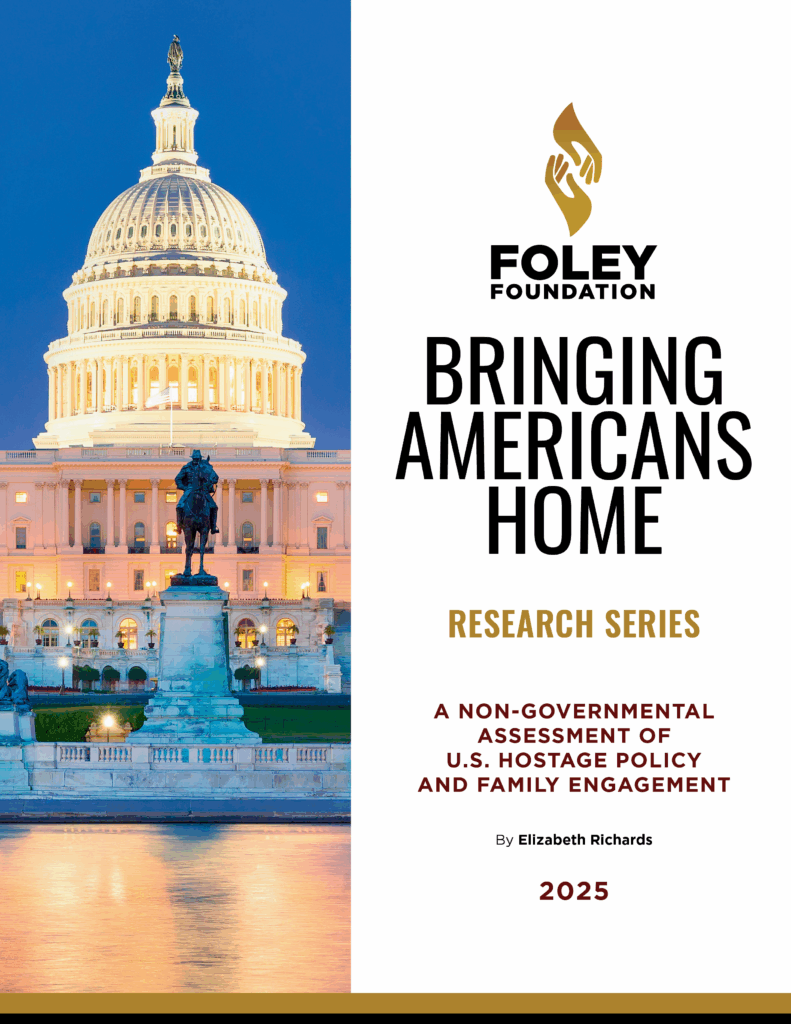
Latest Qualitative Report
Bringing Americans Home
Bringing Americans Home: 2024 Landscape Report
This paper describes the hostage and wrongful detention landscape for 2024 using descriptive and inferential statistics.
It explores the problem in terms of the known number of Americans held, the number of new cases during the past calendar year, number of releases, and number of deaths. This paper is not an assessment of the effectiveness of the U.S. hostage enterprise or U.S. hostage policy. The analysis presented here cannot be used to draw inferences about the efficacy of the U.S. hostage enterprise or U.S. hostage policy as both are outside of
the scope of this paper.
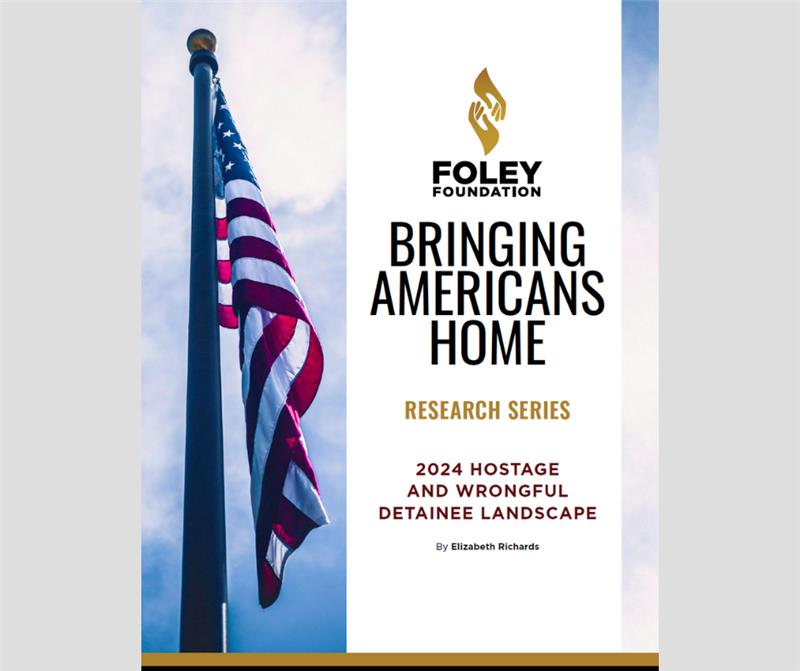
Bringing Americans Home: 2024
This report, conducted by the Foley Foundation, builds upon the Foundation’s previous assessments of the effectiveness of the 2015 U.S. Hostage Policy Review, the implementation of Presidential Policy Directive 30, Executive Order 13698, Executive Order 14078, and the Robert Levinson Hostage Recovery and Hostage-Taking Accountability Act. It integrates an examination of the landscape of hostage-takings and wrongful detentions of U.S. nationals using the Foley Foundation’s database of cases with a survey of family members and other stakeholders connected to 27 cases of hostages and wrongful detainees. Through confidential interviews with 62 participants, this report represents the perspectives of these U.S. hostages, wrongfully held detainees, their families, representatives, and advocates.
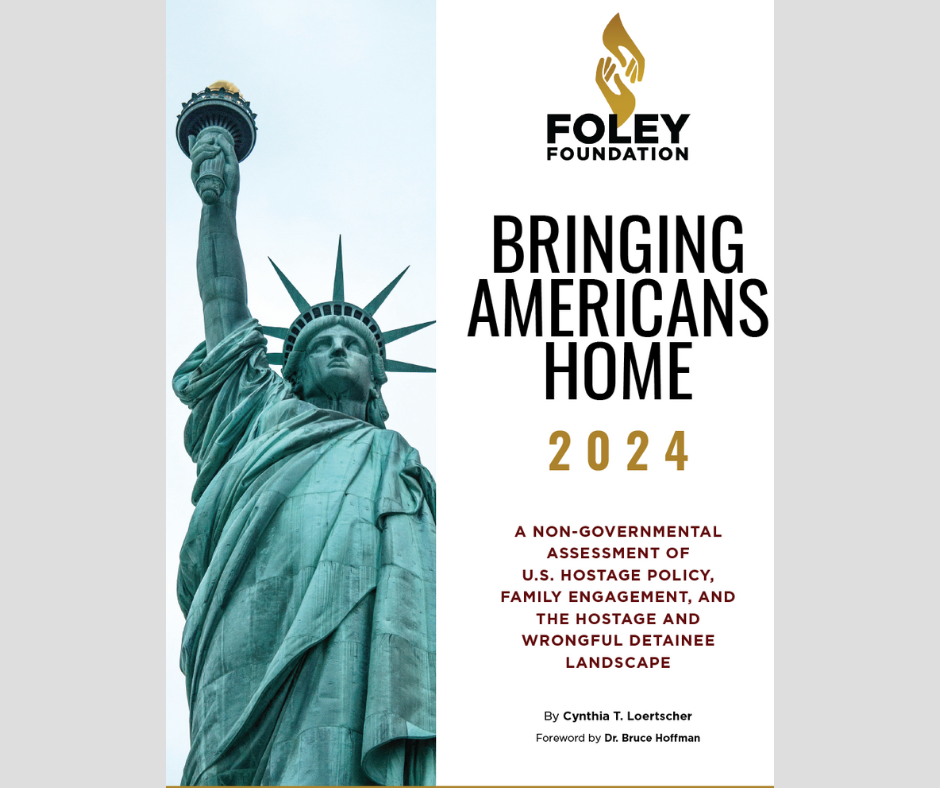
Bringing Americans Home: 2023
This report, conducted by the James W. Foley Legacy Foundation (JWFLF), consists of two sections.. The first section, “U.S. National Wrongful Detention and Hostage-Taking Landscape, 2022-2023,” used two JWFLF datasets containing information on 422 U.S. nationals held hostage or wrongfully detained abroad from January 1, 2001, through July 31, 2023, to discuss trends, releases, and detailed outcomes. The second section, “Wrongful Detainee and Hostage Perspectives,” was written by Matthew Heath and Jeffery Woodke, two former captives. Both perspectives provide ways to rethink U.S. strategy on wrongful detentions and hostage-takings. Their stories help to shed light on the toll of captivities and the importance of securing the freedom of all Americans.

Bringing Americans Home: 2022
From 2019–2021, the James W. Foley Legacy Foundation published a yearly assessment of the efficacy of the 2015 U.S. Hostage Policy Review and the implementation of PPD-30 and EO 13698. This report, an extension of those assessments, continues to examine how the U.S. government creates and implements policy in support of U.S. nationals taken hostage or wrongfully detained abroad as well as their families. Most importantly, this report seeks to better understand whether the new structures these policy changes have created help bring Americans home and offers nine recommendations to improve the government’s hostage enterprise.

Bringing Americans Home: 2021
This report, conducted by the James W. Foley Legacy Foundation (JWFLF), is a continuation of JWFLF’s assessments of the efficacy of the 2015 U.S. Hostage Policy Review and the implementation of Presidential Policy Directive 30 and Executive Order 13698. This study seeks to convey the perspectives of U.S. hostages, unlawfully or wrongfully held detainees, their family members, representatives, advocates, former senior military officials, and current and former U.S. officials. It, however, does not represent the perspectives of all former hostages, detainees, and their families, but only presents the perspectives of those who participated in this study

Bringing Americans Home: 2020
This report, conducted by the James W. Foley Legacy Foundation (JWFLF), is a continuation of JWFLF’s initial assessment of the efficacy of the 2015 U.S. Hostage Policy Review and the implementation of PPD-30 and EO 13698. This study was conducted from the perspective of American hostages, wrongfully held detainees, and their family members and representatives. It does not represent the perspective of all former hostages, detainees, and their families, but only presents the perspectives of those who participated in this study.
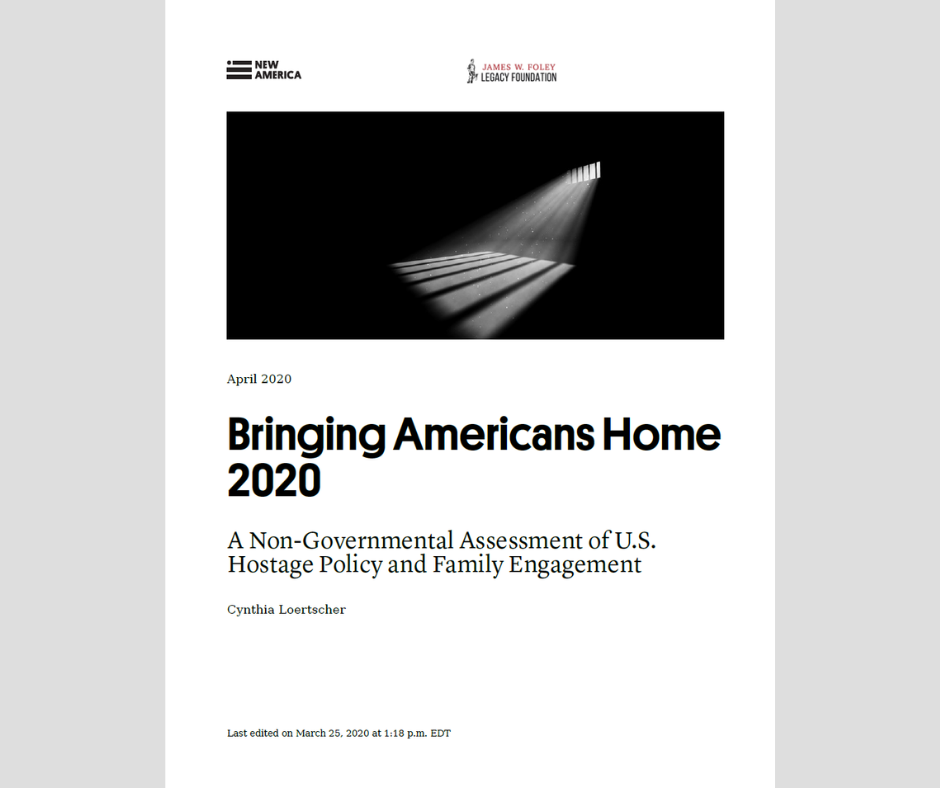
Bringing Americans Home: 2019
This assessment, conducted by the James W. Foley Legacy Foundation, (JWFLF) is the first non-governmental review of the efficacy of the 2015 U.S. Hostage Policy Review and the implementation of Presidential Policy Directive 30 (PPD-30) and Executive Order 13698 (EO 13698) concerning hostage recovery activities. This study was conducted from the perspective of former American hostages, family members of current and former U.S. hostages, and others detained unlawfully or wrongfully by a foreign government. This study does not represent the perspective of all former hostages, detainees, and their families, but only presents the perspectives of those who participated in this study.

